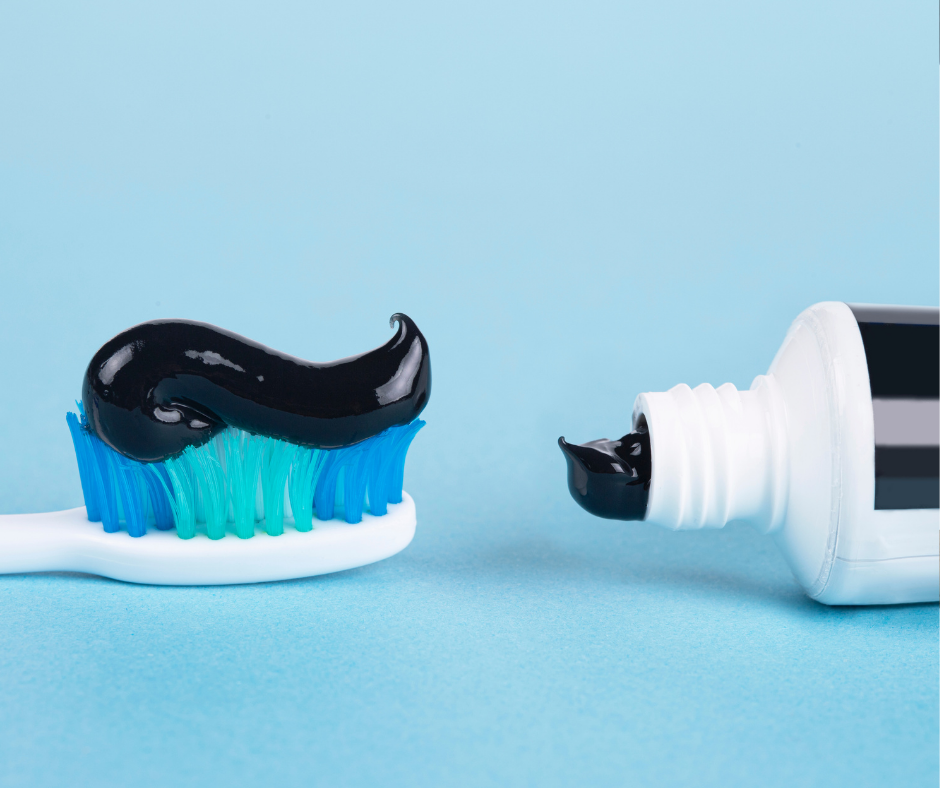The Truth About Charcoal Toothpaste: Does It Work or Hurt?

Charcoal toothpaste has been trending for a while now, popping up all over social media with dramatic before-and-after photos and promises of a dazzling white smile. It’s marketed as a natural, detoxifying way to clean and whiten your teeth. But does it really work—or could it actually be hurting your smile?
Let’s break down the facts so you can make the best decision for your oral health.
What Is Charcoal Toothpaste?
Charcoal toothpaste is made with activated charcoal, a form of carbon that’s been treated to increase its absorbency. It’s used in some medical settings to absorb toxins, which is why marketers claim it “pulls” stains and toxins from your teeth and gums.
Sounds great in theory, right? But your mouth isn’t a chemistry experiment—it’s a delicate environment that needs a balance of cleaning and protection.
Can It Whiten Your Teeth?
Charcoal toothpaste may remove some surface stains caused by coffee, tea, or red wine. That’s because charcoal is mildly abrasive—it can scrub away external discoloration. But here’s the catch: it doesn’t actually change the natural color of your teeth or remove deeper stains. So, if you’re expecting professional-level whitening results, you’ll likely be disappointed.
Also, that “scrubbing” action can come at a cost…
The Downside: Is Charcoal Toothpaste Too Harsh?
Many dentists have concerns about how abrasive charcoal toothpaste can be. The gritty texture that helps remove surface stains may also wear down tooth enamel, which is the hard outer layer of your teeth. Once enamel is gone, it doesn’t grow back—and that can lead to increased sensitivity, a duller tooth color, and a higher risk of cavities.
Another red flag? Most charcoal toothpastes don’t contain fluoride, a key ingredient that helps protect your teeth from decay. Without it, your teeth might look slightly cleaner but be more vulnerable to damage in the long run.
And despite the marketing claims, there’s no strong scientific evidence showing that charcoal helps “detox” your mouth or improves your gum health.
So… Should You Use It?
If you’re thinking about trying charcoal toothpaste, use it cautiously and sparingly. Don’t make it your everyday toothpaste, and be sure it’s not overly abrasive. Better yet, talk to your dentist at Fairfield Dental Arts before using any new product—especially one that’s more about hype than science.
There are plenty of safe, effective whitening options available—from gentle whitening toothpastes that do contain fluoride, to professional treatments that can brighten your smile without damaging your enamel.
Bottom Line
Charcoal toothpaste might offer a short-term polish, but it comes with long-term risks if overused. When it comes to keeping your smile healthy and bright, your best bet is regular brushing with fluoride toothpaste, flossing, and routine dental visits. And if you want to whiten your teeth safely, we’re happy to walk you through your best options.
Have questions about whitening or the right toothpaste for you? Give Fairfield Dental Arts a call—we’re always here to help you smile with confidence!


